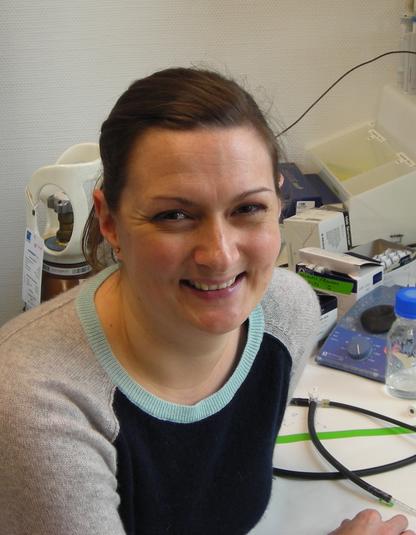
Laura Bristow has a passion for low oxygen systems
Laura Bristow’s research aims to contribute to the improved understanding of the biogeochemistry and microbial ecology of low oxygen regions. She will never cease to be amazed by the versatility of microbes and their ability to always find a way and a niche to flourish in.
What are you going to work with here?
My research aims to contribute to the improved understanding of the biogeochemistry and microbial ecology of low oxygen regions, which is highly pertinent as low oxygen regions of the ocean have expanded in size and number during the past decades and models predict further expansion in the future as a result of global change. My toolbox to carry out this work includes stable isotope analyses, experimental (in situ) incubations, and biomolecular techniques.
Currently I am working on projects in the seasonally and permanent low oxygen regions of Danish coastal waters, Saanich Inlet, Canada, and the eastern tropical North Pacific, and hopefully soon I can add the Baltic to this list.
As nitrogen is a limiting nutrient for primary production in large parts of the ocean, understanding the factors that regulate its availability is critical for the analysis and prediction of the biogeochemical function of the ocean and hence makes up the corner stone of my research in low oxygen regions.
Central questions of my work right now focus on recycling versus loss of nitrogen, production / consumption of the potent greenhouse gas nitrous oxide and taking our low oxygen rate measurements in situ. The cycling of nitrogen is also intrinsically linked to the cycling of carbon and sulfur, so they also have a key role to play in my research. I will never cease to be amazed by the versatility of microbes and their ability to always find a way, and a niche to flourish in.
What did you do before?
A long time ago I left the UK after finishing my PhD at the University of East Anglia and was a postdoctoral researcher at the University of Massachusetts Dartmouth, USA and then at the University of Southern Denmark (SDU), Odense, Denmark. After a couple of years as a research scientist at the MPI for Marine Microbiology in Bremen, Germany, I made my return to Denmark and SDU as assistant then associate Professor.
Many things though have remained consistent through all of this, including my passion to work on low oxygen systems, integrating biogeochemistry and microbial ecology, my love of field work and if I had a choice, I would spend my whole day in the lab!
What do you do when you are not working?
I love to be in the kitchen, cooking and baking (guess that’s the lab scientist in me!), spending time with my family and friends, and I never miss an opportunity to be outside particularly at the coast.
Interview: Annika Wall
